Unlocking Efficiency: How Water Quality Impacts Your Boiler’s Performance
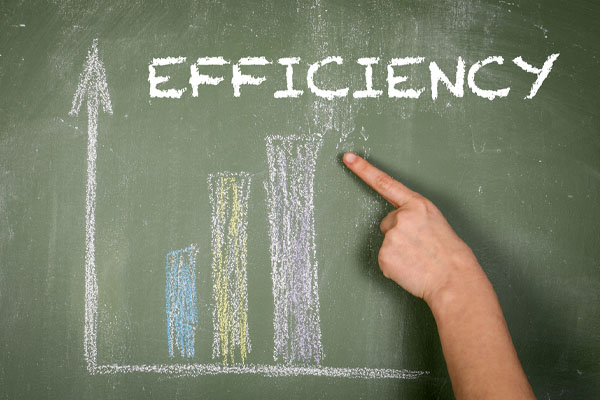
Boiler efficiency is pivotal in homes, impacting energy costs and the environment. It gauges a boiler’s ability to convert fuel into heat, lowering energy bills and emissions. Water quality is critical, with contaminants causing scaling, corrosion, and foaming, harming boiler performance. Managing water quality is key for top efficiency.
Fundamentals of Boiler Functionality
Contents
- Fundamentals of Boiler Functionality
- Boiler Water Treatment Strategies
- Advantages of Maintaining Optimal Water Quality in Boilers
- Frequently Asked Questions: Boiler Efficiency & Water Quality
- What Exactly is “Boiler Efficiency”?
- How Can I Tell if Poor Water Quality is Affecting My Boiler’s Efficiency?
- Can Regular Tap Water Be Used in Boilers?
- How Often Should Water Quality Be Checked in Boiler Systems?
- What Are the Long-Term Implications of Neglecting Water Quality in a Boiler System?
- Conclusion
- Contact R.F. Ohl for Premier HVAC Services
Understanding the Importance of Water in Boiler Systems
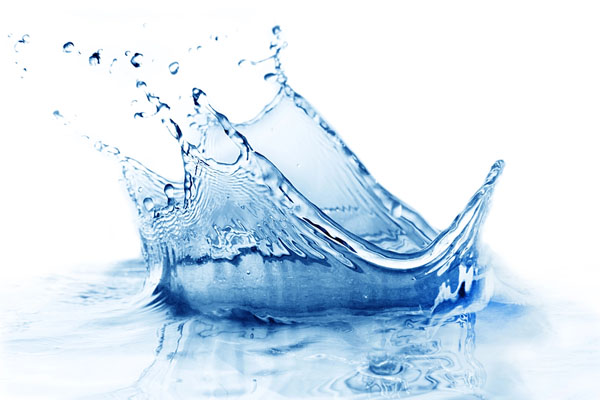
Water plays an indispensable role in boiler operations. It acts as a medium for transferring heat, effectively distributing the energy generated from fuel combustion. This is essential for heating purposes and a range of industrial processes. In the case of steam boilers, water undergoes heating until vaporization, creating steam used in many applications.
Essential Elements of a Boiler System
A boiler system is made up of several critical elements that work together. At its core is the burner, which ignites the fuel within the combustion chamber, turning it into heat. This heat is subsequently transferred to the water through the heat exchanger. The system also has various controls and safety mechanisms to ensure it operates efficiently and safely. Additionally, the flue stack plays a vital role in venting the by-products of combustion. Each component is integral to the boiler’s overall functionality and efficiency.
Impact of Water Quality on Boiler Efficiency
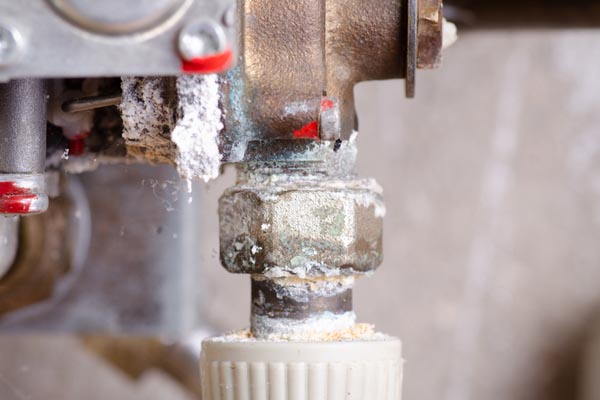
Identifying Common Contaminants in Boiler System Water
Various impurities commonly found in the water utilized in boilers can adversely affect the system’s efficiency. These impurities include:
- Minerals: Elements like calcium and magnesium are common in hard water.
- Gases: Oxygen and carbon dioxide are examples of gases that can enter the system.
- Organic Compounds: These can originate from multiple sources.
- Suspended Solids: These can be introduced into the boiler water from internal and external environments.
The Effects of Scale Accumulation in Boilers
Scale formation represents a significant challenge in boilers, primarily caused by the precipitation of minerals such as calcium and magnesium. This issue results in several key problems:
- Development of Scale: This occurs when the aforementioned minerals settle and solidify on boiler surfaces.
- Impaired Heat Transfer: Scale acts as a barrier, reducing the boiler’s ability to transfer heat efficiently.
- Risk of Tube Damage: Over time, the accumulation of scale can lead to blockages in the tubes, potentially causing severe damage.
Corrosion and Its Detrimental Effects
Corrosion in boiler systems is a significant concern due to factors like oxygen infiltration and pH level imbalances. It jeopardizes system integrity, impacting efficiency and safety. Addressing corrosion promptly is crucial to maintain boiler efficiency.
Foaming, Priming, and Carryover
Boiler efficiency can be hindered by water impurities, causing poor steam quality and system inefficiency. Less common but significant issues like foaming and carryover can damage downstream equipment, requiring extra maintenance and causing operational challenges.
Boiler Water Treatment Strategies

Pre-treatment Methods
Implementing effective water treatment strategies is essential for the upkeep of boiler efficiency. Pre-treatment options are a critical part of this approach. These methods include:
- Filtration Systems: These are engineered to extract particulate matter and suspended solids from the water.
- Softening and Ion Exchange Units: These systems minimize the hardness of water by eliminating minerals like calcium and magnesium.
- Deaeration Techniques and Oxygen Scavengers: These remove dissolved gases, especially oxygen, to prevent corrosive damage.
- pH Adjusters and Alkalinity Builders: Employing these helps maintain the appropriate pH and alkalinity levels in the boiler water, avoiding corrosion and scale buildup issues.
Internal Boiler Water Treatment Techniques
To safeguard against efficiency loss and damage, internal treatment methods are utilized within the boiler system. Key methods include:
- Scale Inhibitors: These are specific chemicals formulated to prevent scale buildup on the internal boiler surfaces.
- Corrosion Inhibitors: These substances are designed to protect the boiler’s metal surfaces from corrosive elements.
- Antifoaming Agents: These are employed to minimize foaming within the boiler, which can affect the steam quality and operational efficiency.
- Dispersants: These agents aid in dispersing suspended solids, preventing the formation of harmful deposits.
Ongoing Surveillance and Automated Control Systems
The enduring efficiency and safety of boiler systems hinge significantly on consistently monitoring and controlling water quality. This includes:
- The Need for Routine Monitoring: Regular monitoring is crucial for identifying and correcting any emerging water quality problems early.
- Technological Progress in Managing Boiler Water Quality: Contemporary technological advancements have led to the development of precise and automated systems for controlling water quality. These innovations greatly enhance the capacity for efficient and effective management of boiler systems. They have been instrumental in maintaining ideal water conditions and boosting boilers’ overall efficiency and lifespan.
Advantages of Maintaining Optimal Water Quality in Boilers
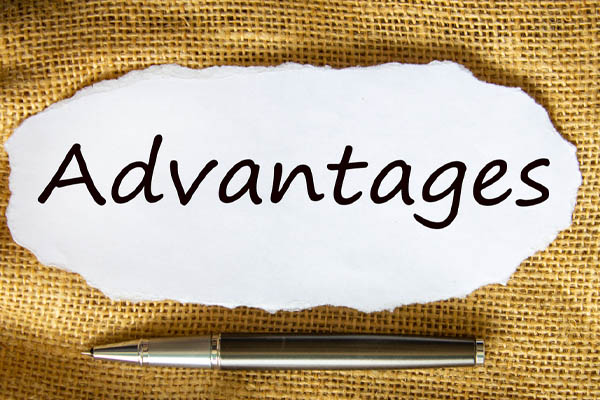
Maintaining superior water quality in boiler systems offers numerous benefits, significantly enhancing performance and safety.
Enhanced Efficiency and Economic Benefits
Optimal water quality plays a pivotal role in maximizing boiler efficiency. This leads to reduced energy usage and notable cost savings. The boiler’s heat transfer capabilities are preserved by averting prevalent problems such as scaling and corrosion, ensuring efficient operation.
Prolonging Boiler Lifespan
Using clean water in boiler systems is crucial for reducing scale accumulation and corrosion. This directly contributes to a longer lifespan of the boiler components, minimizing the need for frequent replacements and repairs.
Minimizing Maintenance Expenses and Operational Interruptions
Enhanced water quality in boiler systems leads to a noticeable decrease in the need for regular servicing and a reduction in breakdown occurrences. This lowers the direct expenses associated with maintenance and diminishes the inconvenience of operational downtimes.
Safety Enhancements
Ensuring proper water treatment and management in boiler systems plays a crucial role in enhancing operational safety. By preventing problems that could result in leaks or even explosions, maintaining high water quality is essential for creating a safer environment in residential and industrial contexts.
Frequently Asked Questions: Boiler Efficiency & Water Quality

What Exactly is “Boiler Efficiency”?
Boiler efficiency refers to the effectiveness with which a boiler transforms the energy contained in its fuel into usable heat. Generally expressed as a percentage, this efficiency indicates the proportion of the total energy in the fuel effectively converted into heat.
How Can I Tell if Poor Water Quality is Affecting My Boiler’s Efficiency?
To determine if poor water quality is impairing your boiler’s efficiency, look for signs such as a decrease in heating output, a rise in fuel consumption, or unusual noises and operational behaviors. These indications can point to scaling, corrosion, or other water-related problems within the boiler.
Can Regular Tap Water Be Used in Boilers?
Using tap water in boilers is technically feasible, but it might not always be the best choice. Tap water can contain various impurities, including minerals and chemicals, which might contribute to scaling and corrosion. These issues can adversely affect the boiler’s efficiency and longevity.
How Often Should Water Quality Be Checked in Boiler Systems?
Conduct water quality checks regularly for optimal boiler maintenance and performance. Ideally, these assessments should be carried out annually. Regular monitoring enables the early detection and remediation of any water-related issues that might affect the boiler’s performance.
What Are the Long-Term Implications of Neglecting Water Quality in a Boiler System?
Ignoring water quality in a boiler system can have significant long-term implications. These include a decline in boiler efficiency, escalating repair and maintenance expenses, and a reduced boiler lifespan. Moreover, poor water quality can create safety risks, including the potential for leaks or system failures.
Conclusion
Water quality undeniably impacts boiler efficiency. Maintaining optimal conditions through regular maintenance, vigilant monitoring, and effective water treatment is essential. Homeowners and facility managers should prioritize these practices to protect their boiler systems, ensuring efficiency, cost savings, and operational effectiveness
Contact R.F. Ohl for Premier HVAC Services
R.F. Ohl is recognized as a leading provider of top-tier heating and cooling solutions in Northeastern Pennsylvania. Our team of professionally certified technicians excels in various HVAC services, including tune-ups, repairs, installations, and replacements. We’re dedicated to ensuring your system operates at peak efficiency and effectiveness. Rely on us for expert, tailored service that meets your specific HVAC requirements.
We offer competitive pricing while also delivering a promise of enhanced comfort, heightened energy efficiency, and lowered heating and cooling costs for your home. Whether you require a repair or are considering a new system, we provide recommendations that fit your budget, all backed by our commitment to your satisfaction. Contact R.F. Ohl today for a complimentary, in-home estimate.
Click here to contact us today or give us a call at (610) 377-1098 if you have any questions. Click the link to view our service area.
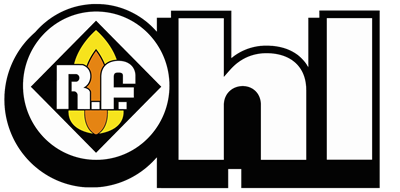
Related Articles: